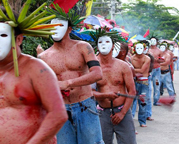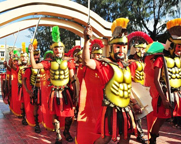- News Front Page
- Uncategorized
- Headline News
- Filipino Calgarian
- Business
- Pinoy News
- Community News
- Publisher's Note
- Kuya Bong's Kusina
- Views and Opinions
- Maikling Kwento
- Alberta News
- OFW – Month
- Travel News
- Health and Lifestyle
- Pinoy Toons
- Pinoy Spirit
- Entertainment
- The Philippine Lawyer
- Horoscope
- Greetings
- Editorial
- About Us
- Greetings From the Prime Minister
- Greetings from the President of the Philippines
- Greetings from the Premier of Alberta
- Greetings from the Mayor of Calgary
- Advertise With Us
- Disclaimer
- Subscription
Publisher's Note
- Publisher’s Note
Dear Readers, As the holiday approaches, let us be reminded to the through spirit of christmas. Let us be giving and be kind to one another and greet the coming new year full of hope and joy. I would to thank our writers and of course our dear sponsors who has been with us through 2019 [...]
Visitors to Pinoytimes
Page added on April 22, 2017
Holy Week practices in the Philippines
PASSION OF CHRIST. Scenes from the Via Crusis are re-enacted in the streets
From crucifixion rites to the Easter egg hunt adopted from Western countries, the Catholic faithful in the Philippines observe practices and traditions in observing Holy Week
MANILA, Philippines – Holy Week is observed by devout Catholic faithful around the world. In the Philippines, it’s a time for solemn prayer and the observance of traditions, several of which are unique to Filipino culture as they combine religious faith with folk beliefs.
Moriones Festival
MORIONES. Scenes from the Via Crusis are re-enacted in the streets on Good Friday. Colorful costumes and masks of men acting as Roman soldiers highlight the event as part of the Moriones festival.
The Moriones Festival is held during the Lenten season in Marinduque province. In the week-long commemoration of Jesus’ life and death, participants dress up as Roman soldiers and go around the streets from Holy Monday to Easter Sunday, reenacting scenes from the Passion of Christ.
Participants wear costumes, headgear, and masks depicting the faces of Roman centurions as they reenact the story of Longinus, the half-blind Roman soldier who was present during Jesus’ crucifixion.
According to Biblical stories, Longinus pierced Jesus’ side, causing some of his blood to hit his eye, miraculously restoring his vision. It was then that Longinus professed faith and believed that Jesus was the son of God.
In the festival, the Morion playing Longinus would go around town on Easter Sunday proclaiming Jesus’ resurrection, as other soldiers chase after him. It would culminate in Longinus’ capture and beheading because of his faith.
Crucifixion rites
In some parts of the Philippines, Good Friday is marked by a bloody practice: reenacting the suffering of Jesus Christ, from the flagellation to the crucifixion.
In San Pedro Cutud in Pampanga province, penitents willingly undergo extreme physical pain as a form of atonement. Penitents whip themselves on the back, using whips made of bamboo or paddles with pieces of broken glass to draw blood.
To complete the rites, some devotees willingly allow themselves to be nailed to the cross, reenacting Jesus’ crucifixion.
Behind this practice is a personal vow or panata. Sometimes the ritual is being done in exchange for an answered prayer for problems with one’s health or finances. Some penitents also undergo the ritual to ask for forgiveness.
While the local church does not endorse the practice of inflicting pain on oneself, the tradition is still popular in Pampanga, Bulacan, and Cebu, among other places.
Complete silence
One Philippine tradition, especially in rural areas, is the observance of silence on Good Friday. People are encouraged to turn off their radios and televisions and limit conversations on the day that marks the crucifixion and death of Jesus Christ.
Through complete silence, it is believed that people will be able to communicate with God through devotional reading and personal prayer.
RELATED STORIES
LATEST HEADLINES
- Announcement for 2020 Presidential Awards
- More funding for skilled trades education
- Youth Employment Centre connects 150 youth to job opportunities with leading Calgary employers
- Premier Kenney town hall about immigration strategy meeting
- ASAP in Bay Area
COMMUNITY NEWS
Announcement for 2020 Presidential AwardsKababayans Benefit From Knights of Columbus Coats For Kids Program
The Voice of the Champion Season 2 Grand Finals
 Golden Generations Hold Computer Training Sessions
Golden Generations Hold Computer Training SessionsPINOY STORIES
Filipino culture takes spotlight as 2019 SEA Games officially opens- Holy Week practices in the Philippines
PINOY SPIRIT
HAVE YOUR SAY
Lorem ipsum dolor sit amet, consectetur adipiscing elit, dolor sit ipsum.PROMOTIONAL BLOCK
Lorem ipsum dolor sit amet, consectetur adipiscing elit, dolor sit ipsum.TRAVEL NEWS
PINOY TOONS
Tags
Archives

















